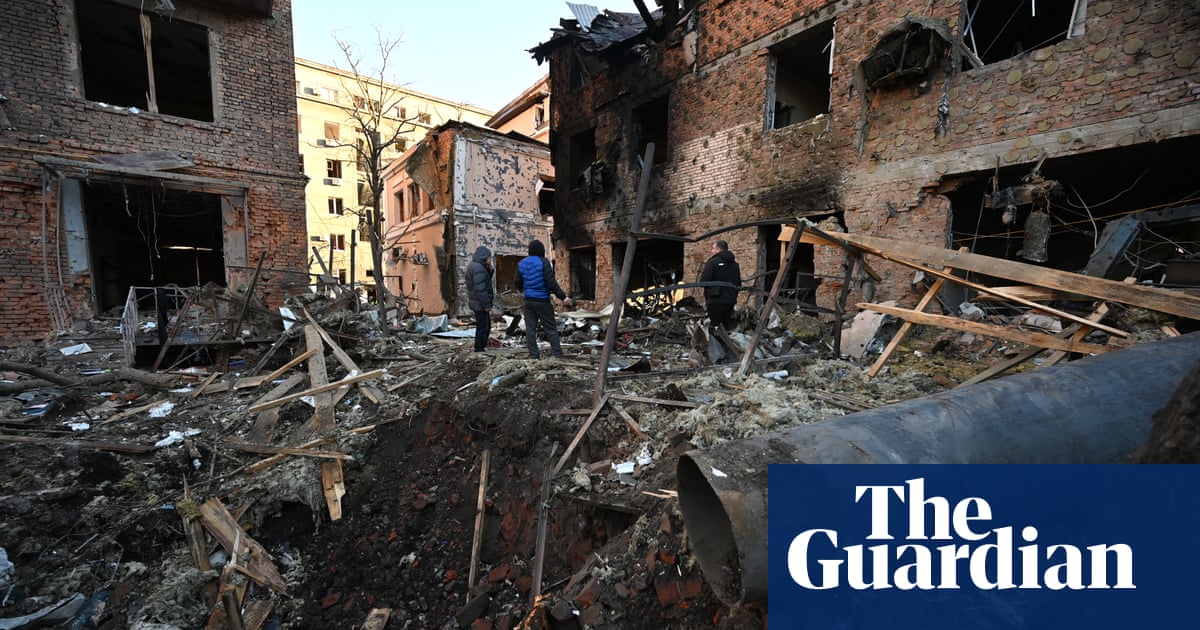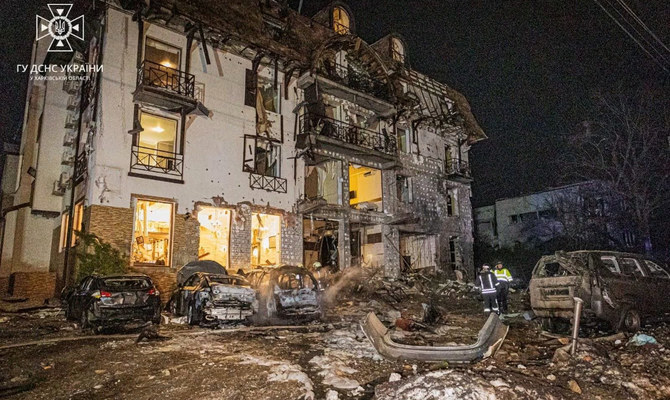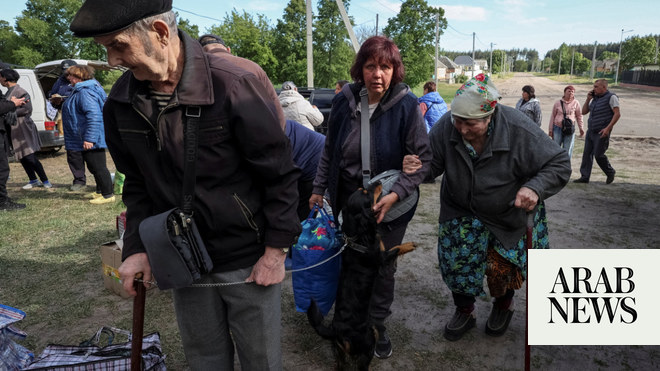
Moscow has said the wave of drone and missile strikes that wounded at least 28 people in Ukraine’s second-biggest city late on Saturday was launched in retaliation for the “terrorist attack” on the Russian border city of Belgorod earlier the same day that reportedly killed 24 people.
Ukraine’s national police said on Sunday that at least six Russian missiles had reached Kharkiv on Saturday night, injuring more than two dozen people and hitting 12 apartment buildings, 13 residential houses, a hotel and a kindergarten.
The country’s interior minister, Ihor Klymenko, said a British journalist was among those wounded, while the German public broadcaster ZDF said on Sunday that one of its television crews had been in the Kharkiv Palace hotel when it was hit. A Ukrainian translator had been hit by debris and seriously wounded, with one of the team’s security guards also sustaining injuries, ZDF said in a statement.
The missile strikes, which came as Kharkiv prepared for new year celebrations, were followed by waves of drone attacks on housing blocks. On Sunday, the Ukrainian air force said it had destroyed 21 of 49 Iranian-made Shahed drones that Russia had used to target “the frontline of defence, as well as at civilian, military and infrastructure facilities in the frontline territories”.
In a statement on Sunday, Russia said it had attacked military facilities in Kharkiv overnight – including a hotel housing military commanders and “foreign mercenaries” – in response to Ukraine’s strikes on Belgorod on Saturday.
Kyiv, however, denied the claims. Andriy Yusov, a spokesperson for the GUR military intelligence agency, said the statements from Russia were “yet another delusional fantasy from the terrorist regime waging a genocidal war against Ukraine”, Euromaidan News reported.
In comments to the Ukraine Pravda media outlet, Yusov added: “As for the latest nonsense from what is called the ministry of defence of the aggressor state, we can assure you that no DIU [Defence Intelligence of Ukraine] officers, nor any DIU soldiers from Ukraine’s Kraken special unit, were injured during another terrorist attack on Kharkiv yesterday [30 December].”
Vyacheslav Gladkov, the governor of the Belgorod region adjoining northern Ukraine, said the death toll from the Ukrainian rocket attack on the regional capital had risen to 24. In a posting on Telegram he said there were also 108 wounded and that 37 apartment buildings had been damaged.
The Guardian could not independently confirm the death toll. If the numbers were correct, the strike would be one of the deadliest on Russia during the war so far.
Footage of Belgorod published on Russian social media showed burning cars and black smoke rising from damaged buildings. One strike allegedly hit close to a central ice rink.
Belgorod is just over half an hour’s drive from the border with Ukraine, making it a vital stop on Russian supply lines. The city has come under extensive shelling and drone attacks for months.
Russia’s defence ministry said it had identified the ammunition used in the Belgorod strike as Czech-made Vampire rockets and Olkha missiles fitted with cluster-munition warheads. It provided no additional information, and the Associated Press was unable to verify its claims.
“This crime will not go unpunished,” the ministry said in a statement on social media.
In an emergency UN security council meeting demanded by Russia on Saturday night, its envoy, Vasily Nebenzya, accused Kyiv of a “terrorist attack”. In comments carried by Russian state media, Nebenzya claimed Ukraine had launched “a deliberate act of terrorism directed against civilians”.
There was no official comment from Kyiv in the hours after the attack on Belgorod.
Like other Russian border zones, the city has suffered shelling and drone attacks all year, which authorities have blamed on Ukraine, though none have previously been on such a scale.
The Belgorod attack came a day after Ukraine said a barrage of Russian missile strikes on several cities, including Kyiv, had killed 39 people.
Russia’s army said it had “carried out 50 group strikes and one massive strike” on military facilities in Ukraine over the past week, adding that “all targets were hit”.
Both sides deny targeting civilians in the war that Russia launched against its neighbour in February 2022. The UN says that more than 10,000 civilians have been killed in Ukraine and nearly 60 people inside Russia.
Vladimir Putin gave his traditional New Year’s Eve address on Sunday, in which he praised Russia’s soldiers on the frontline and called for unity in the face of “difficult tasks”.
“To all those who are on duty, on the frontline of the fight for truth and justice,” the Russian president said, “you are our heroes. Our hearts are with you. We are proud of you, we admire your courage.”
As Ukraine prepared to usher in the new year, its president, Volodymyr Zelenskiy, once again appealed for international support.
“Whatever happens in other countries, whatever political changes or moods, we must have sufficient potential to do our thing, to achieve our goals,” he wrote in a post on X on Sunday.
“We will be fighting for our influence and for justice for Ukraine, and I am grateful to all the leaders who are assisting us, who have been with us since February 24th and will stand with us in 2024.”












